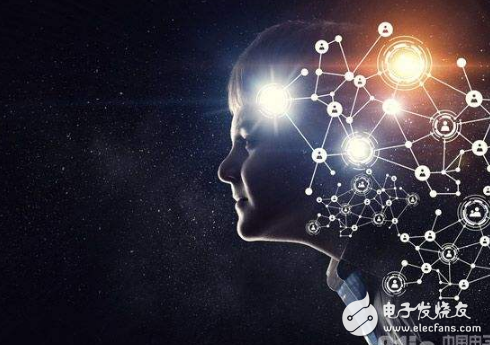For the global industry, 2017 can be regarded as the first year of AI artificial intelligence. Whether it is the international research institution Gartner or the domestic market strategy research institute (MIC), the selection of "artificial intelligence" is the most critical technological development in 2017. The application field of AI is not only displayed in robots, Internet of Things (IoT), unmanned vehicles, but also in the information department. The information application and security are good and the details are in artificial intelligence. Why is AI relevant to the information department? This happens to be the result of the collision of technology! With the popularization of mobile devices, the Internet of Things is becoming more and more common in daily life, and the big data of daily consumption activities of human beings is being continuously collected and transmitted. These huge amounts of data can be analyzed and simulated through AI technology to optimize the information system and process a large amount of information flow. In other words, each information supervisor is the biggest homework in 2018, that is, to understand AI! Technology is changing with each passing day, and rapid changes between companies are more competitive. Gartner predicts that the top ten technologies in 2018 include three levels, the first is AI, the second is digital, and AI is the second avatar of digitalization - a tool for digital analysis and cloud computing. The IT department also needs to face the high workload, high cost and high complexity of the "three high" symptoms brought about by today's new technology. In 2018, more AI solutions will be introduced into the market, mainly driven by blockchain, event-driven and information security. In the future, information security is a new technology that controls risks and how CIOs control trust. According to the Gartner survey, by 2020, nearly 95% of machines have IoT participation. IT will also have a lot of work to be replaced by AI. In addition to replacing human resources, it can also coordinate manpower transformation and assist other departmental roles. This also shows that more and more companies are beginning to seek technology for AI machine learning, such as online customer data analysis, customer service robots, consumer model analysis, etc., highlighting the combination of marketing and AI technology is booming. In addition, the survey information also mentioned that through AI, they can organize a diversified customer experience based on customer data, and the information can exceed the system rules and optimize the data system process, thus effectively improving a large number of performance processing indicators. How can I help with the information department with AI machine learning? The biggest advantage is that "simplification is simple." Combine the complex data and reshape different information security and information solutions, and effectively find the "pain point" of the information department for a large amount of information. For example, the data across the sputum screen can rely on the AI ​​computing power, analyze the overlapping data, find the precise TA, the optimal dwell time, which is where the machine learning can greatly assist the information department. It can be imagined that in the future, the artificial intelligence force will greatly rewrite the IT industry in the enterprise, especially in the face of huge data and data analysis every day, and more need for the high performance Computation (HPC) capability. The so-called HPC is to complete complex and large-scale computing work in a short time to improve the processing power of the application. In other words, the AI ​​computing functions required by the information department are closely related to High Performance Data AnalyTIcs (HPDA). The IDC survey agency pointed out that the current growth rate of HPDA commercial advanced analysis server is 26%, of which Lenovo has a growth rate of 17%, which is the fastest growing HPC supplier in the world. At present, Lenovo's high-performance computing market share is 18%, ranking second in the global technology supplier. The Leibniz Supercomputing Center in Germany has reduced the cost of electricity from 27.6 million euros to 17.4 million euros by using the Direct HP Cool technology from Lenovo's HPC solution, saving 35%. For enterprises eager to expand the scope of AI applications, Lenovo's high-performance computing solutions also have the leading edge of high performance, easy deployment management, lower total cost of ownership, and modular experience. Brand marketers want to know how to unlock data potential through high-performance computing? ETOP WIREHARNESS LIMITED , https://www.etopwireharness.com